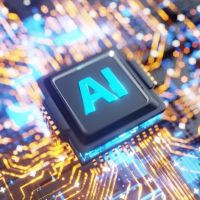The prominence of Artificial Intelligence (AI) as a catalyst for economic and societal development took centre stage at the Annual Meeting of the World Economic Forum, held from 15th to 19th January 2024. Leaders emphasized the potential of technological advancements to address global challenges, stressing the importance of innovation alongside necessary safeguards. Throughout the discussions at Davos, no hour passed without reference to artificial intelligence (AI), with sessions delving into its opportunities and associated risks. From considerations around AI regulation to its implications for employment and inequality, notable quotes from leaders encapsulated the discourse at the 54th Annual Meeting of the Forum.
Sam Altman, CEO of OpenAI
Sam Altman welcomed the scrutiny AI technology was receiving.
"I think it's good that we and others are being held to a high standard. We can draw on lessons from the past about how technology has been made to be safe and how different stakeholders have handled negotiations about what safe means."
"We have our own nervousness, but we believe that we can manage through it, and the only way to do that is to put the technology in the hands of people."
"Let society and the technology co-evolve, and sort of step-by-step with a very tight feedback loop and course correction, build these systems that deliver tremendous value while meeting safety requirements."
Ursula von der Leyen, President of the European Commission
Ursula von der Leyen shared her thoughts about AI’s impact on the future in EU.
"AI is a very significant opportunity – if used in a responsible way,"
"I am a tech optimist and, as a medical doctor by training, I know that AI is already revolutionising healthcare. That's good. AI can boost productivity at unprecedented speed. First movers will be rewarded, and the global race is already on without any question."
"Our future competitiveness depends on AI adoption in our daily businesses, and Europe must up its game and show the way to responsible use of AI. That is AI that enhances human capabilities, improves productivity and serves society."
António Guterres, UN Secretary-General
António Guterres addressed the "existential threat" posed by "the runaway development of AI without guard rails" and its potential to increase inequality in the world.
The private sector should be fully engaged in the UN’s efforts to "develop a governance model that is networked and adaptive" in order to "tap the benefits of this incredible new technology while mitigating its risks."
"We need governments urgently to work with tech companies on risk management frameworks for current AI development, and on monitoring and mitigating future harms."
"And we need a systematic effort to increase access to AI so that developing economies can benefit from its enormous potential. We need to bridge the digital divide instead of deepening it."
Gita Gopinath, International Monetary Fund's (IMF) First Deputy Managing Director
Gita Gopinath outlined the IMF's latest research on AI's impact on jobs.
"Everybody agrees that this is transformational, with a lot of promise, but also risks associated with it. We have a new study that shows that 40% of the global workforce is exposed to AI – that doesn't mean it's a bad thing."
"Some fraction of that will benefit, it will raise their productivity, that fraction is about half of that 40%, and the other half will have a hard time, maybe lower wages, displacement and so on."
She further noted that the banking industry leads in the adoption of this technology, both in terms of expenditure and implementation. She outlined several advantages, including enhanced banking accessibility and productivity. However, she also highlighted accompanying risks, such as bias and concerns regarding data privacy, which "need to be taken care of."
"If we enter into a world where all the banks are using this major technology, are we going to see supercharged herding behaviour? Are we going to see AI bots that are sentiment-driven and feed off each other, and you then end up with much bigger amplitudes in the financial cycle – so big credit booms and busts. I'm not saying it's imminent, but this is something we're paying attention to."
Li Qiang, Premier of the State Council of the People's Republic of China
"Generative AI, represented by ChatGPT, has caused a lot of discussion. People love it, but there are also surprises and fear in certain quarters.
"AI is everywhere, it seems omnipotent, but people are still taking time to get used to it. Like other technologies, AI is a double-edged sword."
"If it is applied well, it can do good and bring opportunities to the progress of human civilization, and provide great impetus to the industrial and scientific revolution."
"But at the same time, it also poses risks to security and ethics. China believes technology must serve the common good of humanity, it must do good, and the same applies to AI."
Satya Nadella, Microsoft CEO
“The biggest lesson learned is we have to take the unintended consequences of any new technology along with all the benefits, and think about them simultaneously – as opposed to waiting for the unintended consequences to show up and then address them.”
"I don't think the world will put up anymore with any of us coming up with something where we haven't thought through safety, equity and trust – these are big issues for the world."
Paula Ingabire, Rwanda's Minister of Information Communication Technology and Innovation
During a session called AI: The Great Equalizer, Paula Ingabire said AI was more of an opportunity than a challenge for the Global South, but digital literacy and the cost of devices need to be addressed.
Gilbert Fossoun Houngbo, Director-General of the International Labour Organization
"We do not believe that AI is going to [cause] an employment apocalypse."
"Although it is true that millions of jobs are going to be lost and millions of jobs are going to be created, the augmentation side is the transformation side."
He emphasised the critical importance of reskilling, upskilling, and lifelong learning in light of this circumstance
Hadi Partovi, Founder and CEO of Code.org
"It's losing their job to somebody else who knows how to use AI. That is going to be a much greater displacement."
"It's not that the worker gets replaced by just a robot or a machine in most cases, especially for desk jobs; it's that some better educated or more modernly educated worker can do that job because they can be twice as productive or three times as productive."
“The imperative is to teach how AI tools work to every citizen, and especially to our young people."
Alexandre Fasel, State Secretary, Switzerland
"AI is amongst the key technologies of our time and will have a lasting impact on society, economies and politics and an important role to play in tackling the global challenges we face."
"Not all countries have the same access to the resources needed to implement these. If we do not address this, AI could become a driver of inequality. We must avoid opening an AI gap. We must ensure all voices are heard and AI solutions are a global public good."
Source & Image Credit: World Economic Forum
Image Source: iStock



























